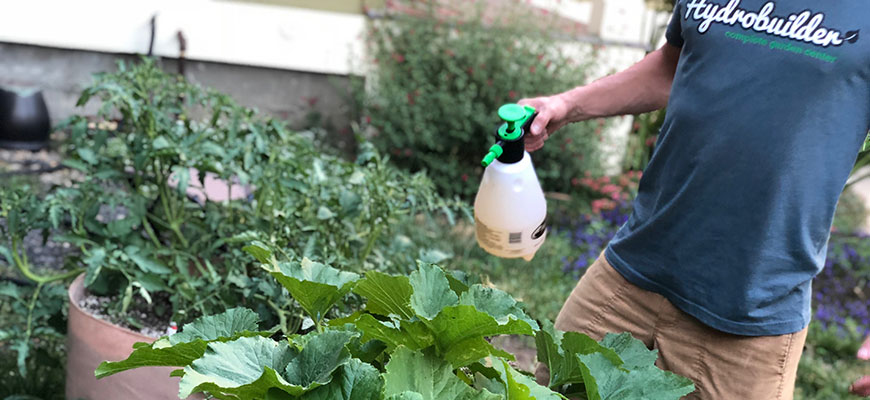Urban Gardening, Master Organic Pest Control

Mastering Organic Pest Control in Urban Gardens
Urban Gardening: A Green Oasis Amidst Concrete Jungles
In the heart of bustling cities, urban gardens are thriving sanctuaries that bring a touch of nature to our doorsteps. These green spaces are not just aesthetically pleasing but also contribute to our well-being and the environment. However, urban gardens face unique challenges, one of the most significant being urban pests. But fear not! Organic pest control methods can keep these critters at bay while maintaining the health of your garden and the environment.
Understanding Urban Pests
Before we dive into control methods, let's understand who we're dealing with. Urban pests can range from insects like aphids, spider mites, and whiteflies to larger critters such as rats and pigeons. Each presents its own set of challenges, but with the right knowledge and tools, you can manage them effectively.
The Principles of Organic Pest Control
Organic pest control isn't just about swapping synthetic chemicals for natural pesticides. It's about creating a balanced ecosystem where beneficial insects thrive and pests are kept in check. The key principles include prevention, monitoring, and control.
Prevention: The First Line of Defense
Prevention is the cornerstone of eco-friendly gardening. Here's how you can deter pests before they become a problem:
- Plant Health: Healthy plants are more resistant to pests. Ensure your plants get adequate sunlight, water, and nutrients.
- Crop Rotation: Rotating crops helps prevent pests that are specific to one type of plant.
- Companion Planting: Certain plants repel pests. For instance, marigolds deter nematodes, while mint repels ants and rodents.
Monitoring: Keep a Watchful Eye
Regularly inspect your garden for signs of pests. Early detection can prevent a minor issue from becoming a full-blown infestation. Look for chewed leaves, discoloration, or tiny eggs under leaves.
Control: Using Natural Pesticides
When prevention and monitoring aren't enough, it's time to bring out the big guns - natural pesticides. Here are a few tried and tested remedies:
- Neem Oil: Extracted from the neem tree, this oil disrupts the life cycle of many pests, including aphids and whiteflies.
- Diatomaceous Earth: This powder is made from fossilized algae. It's harmless to humans but deadly to insects, as it damages their exoskeletons.
- Insecticidal Soap: A simple mixture of soap and water can be effective against soft-bodied insects like aphids and mites.
Beneficial Insects: Nature's Pest Control
Not all insects are pests. Many are predators that feed on the critters causing havoc in your garden. Ladybugs, lacewings, and praying mantises are just a few examples. Attract them by planting pollen and nectar-rich flowers.
Physical Barriers: Simple Yet Effective
Sometimes, the simplest solutions are the most effective. Netting and row covers can physically exclude pests from your plants. This is particularly useful for protecting young seedlings.
Composting: Recycle and Repel
Composting is a great way to reduce waste and improve soil health. Plus, it can double as a pest repellent. Some pests dislike the smell of compost, so placing it around your garden can deter them.
Integrated Pest Management (IPM): A Holistic Approach
IPM combines all the methods we've discussed - prevention, monitoring, control, and the use of beneficial insects. It's a holistic approach that focuses on long-term prevention rather than quick fixes.
Case Study: Success Stories from Around the World
From New York's community gardens to Singapore's rooftop farms, urban gardens worldwide are successfully implementing organic pest control. These examples prove that with the right strategies, you too can maintain a thriving, pest-free garden.
Resources: Where to Learn More
Websites like www.organicgardening.com offer a wealth of information on organic gardening and pest control. Don't hesitate to explore and learn from these resources.
Conclusion
Organic pest control in urban gardens isn't just about eradicating pests; it's about creating a harmonious ecosystem that benefits both your plants and the environment. By understanding and implementing these principles, you can enjoy a lush, green oasis right in the heart of the city.
FAQs
What are some common urban pests? Common urban pests include aphids, spider mites, whiteflies, rats, and pigeons.
Can organic pest control methods eliminate pests completely? Organic methods focus on control and balance rather than complete elimination. The goal is to maintain pest populations at acceptable levels.
Are natural pesticides safe for humans? Most natural pesticides are safe for humans when used correctly. However, it's always a good idea to handle them with care.
How can I attract beneficial insects to my garden? Planting pollen and nectar-rich flowers, providing water sources, and creating suitable habitats can attract beneficial insects.
What should I do if organic methods aren't working? If organic methods aren't effective, it might be time to consult a professional. They can provide personalized advice tailored to your garden's unique needs.
0 Response to " Urban Gardening, Master Organic Pest Control"
Post a Comment